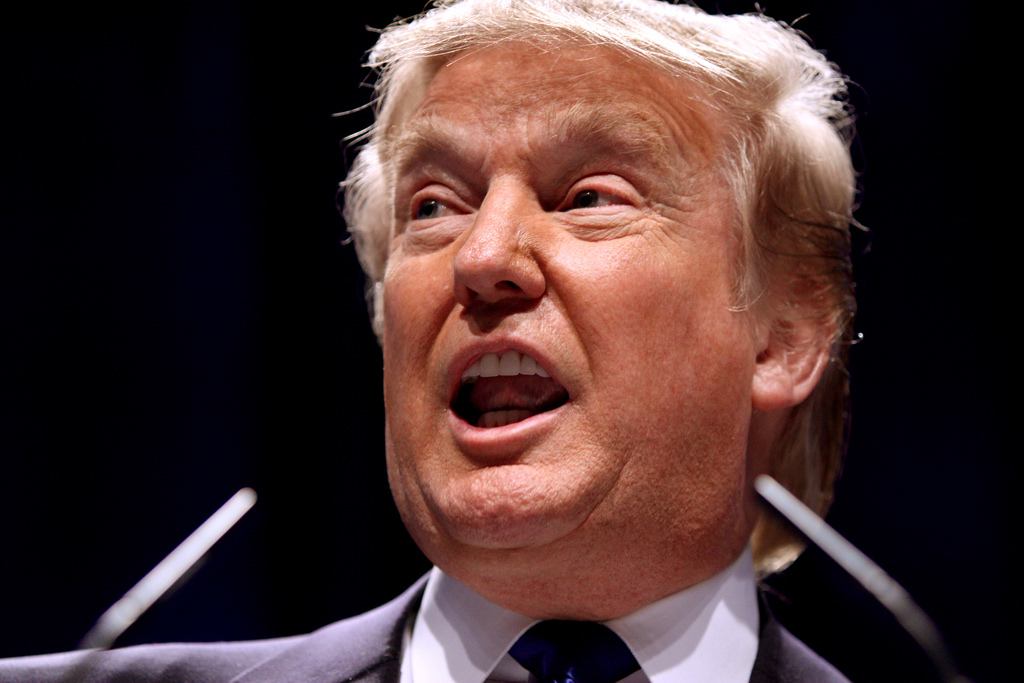Donald Trump demands loyalty from those working close to him. According to former FBI director James Comey, the president told him at a private meeting:
I need loyalty, I expect loyalty.
Comey’s response?
I didn’t move, speak, or change my facial expression in any way during the awkward silence that followed. We simply looked at each other in silence.
But what exactly is loyalty? And why did Comey put on his poker face when asked for it?
Loyalty is one of a trio of emotional bases of social life, along with trust and confidence. Trust is about relying on others to do what we expect them to do. We trust drivers to stop at red lights and teachers to educate our children. A certain amount of confidence allows people to act – to believe that they can accomplish a certain goal, whether its running a marathon or running a country. All three are sentiments which guide us through our daily lives – the glue that binds society together.
Trump gained the trust of American voters when they elected him as their 45th president. And he is not lacking in confidence.
So that leaves loyalty. Loyalty brings expectations of what someone will do in the future. Even after initial strong feelings at the beginning of a new relationship begin to fade, loyalty will remain. It is a complex, long-term, future-oriented emotion.
And this is what Trump appears to demand: an emotional commitment that will live up to his expectations. Loyalty remains even when trust and confidence fade.
Back to Comey’s poker-face. As part of my research into criminal defence lawyers in Sweden, I have observed how loyalty is displayed in the courtroom.
These lawyers are professionally obliged to loyally defend their client. By focusing on emotions and body language, I have found that the display of loyalty (and the defence of a client) involves the management of a number of feelings including irritation, pride, surprise and sadness.
This is what is known as “emotion management” – managing one’s own facial expressions and body language to show a certain outward countenance.
House of Cards
Take former White House press secretary Sean Spicer explaining Trump’s bizarre tweet which included the mysterious word “covfefe”. Just like a good lawyer should defend a client’s version of events as credible, even if it seems highly unlikely, in order to show loyalty, Spicer should hide any observable trace of doubt regarding whether “covfefe” is actually a word at all. (It isn’t.)
Trump has created an “emotional regime” in which the display of loyalty is central. An emotional regime determines which emotions should be shown, how they should be shown, and who should show what, with sanctions in place if anyone breaks these rules.
At one Cabinet meeting, members gushed about what an honour it was to serve Trump and his administration. Almost none of the members expressed anything other than devotion, admiration and confidence.
Yet in the past few weeks there has been a flurry of criticisms by Trump from key members of staff, all of whom were once loyal Trump supporters.
The blink-and-you-missed-it hiring and firing of Anthony Scaramucci as Trump’s communications director highlights another interesting aspect of loyalty. It is not inherently or automatically mutual. Trump may demand loyalty of his staff but they cannot expect Trump’s loyalty in return.
Scaramucci reportedly sacrificed family (missing the birth of his son), finance (selling his company) and reputation, all in order to serve Trump. But these sacrifices were not enough to gain Trump’s loyalty – and Scaramucci was fired after only ten days.
Jeff Sessions, appointed by Trump as attorney general, was the only US senator willing to openly support Trump in the 2016 primaries. Yet his loyalty was repaid by Trump being vocally “very disappointed with the attorney general” after he recused himself from the ongoing investigation into Russian links. “Trumpian loyalty” appears to be a one-way street.
Fake friends
If attempts at emotion management fail to produce the appropriate display of loyalty, one should at least attempt to hide inappropriate emotions behind a poker-face like Comey. Poker-face and “loyalty-face” are examples of what sociologist Erving Goffman called “face work”, where we attempt to give a certain impression of ourselves to others, like a social mask.
That mask was Comey’s response to an explicit demand from the leader of the free world. What Trump was really asking for was a long term emotional commitment that will prevail even when trust is gone – but it’s unclear if he will get this either with Comey’s replacement at the FBI, Christopher Wray, who has stated that “my loyalty is to the constitution and the rule of law”.
It remains to be seen how Trump will handle this open declaration of loyalty to something other than himself. Those who have already openly declared and shown loyalty to Trump have been fired, taunted and publicly criticised. So Wray may have a rocky, or rather, short, road ahead of him. It remains to be seen if he will beat Scaramucci’s 864,000 seconds of employment. The clock is ticking.
 Lisa Flower does not work for, consult, own shares in or receive funding from any company or organisation that would benefit from this article, and has disclosed no relevant affiliations beyond the academic appointment above.
Lisa Flower does not work for, consult, own shares in or receive funding from any company or organisation that would benefit from this article, and has disclosed no relevant affiliations beyond the academic appointment above.



 JPMorgan Lifts Gold Price Forecast to $6,300 by End-2026 on Strong Central Bank and Investor Demand
JPMorgan Lifts Gold Price Forecast to $6,300 by End-2026 on Strong Central Bank and Investor Demand  Trump Administration Appeals Court Order to Release Hudson Tunnel Project Funding
Trump Administration Appeals Court Order to Release Hudson Tunnel Project Funding  Trump’s Inflation Claims Clash With Voters’ Cost-of-Living Reality
Trump’s Inflation Claims Clash With Voters’ Cost-of-Living Reality  U.S. Lawmakers to Review Unredacted Jeffrey Epstein DOJ Files Starting Monday
U.S. Lawmakers to Review Unredacted Jeffrey Epstein DOJ Files Starting Monday  Trump Congratulates Japan’s First Female Prime Minister Sanae Takaichi After Historic Election Victory
Trump Congratulates Japan’s First Female Prime Minister Sanae Takaichi After Historic Election Victory  Jack Lang Resigns as Head of Arab World Institute Amid Epstein Controversy
Jack Lang Resigns as Head of Arab World Institute Amid Epstein Controversy  Ghislaine Maxwell to Invoke Fifth Amendment at House Oversight Committee Deposition
Ghislaine Maxwell to Invoke Fifth Amendment at House Oversight Committee Deposition  Netanyahu to Meet Trump in Washington as Iran Nuclear Talks Intensify
Netanyahu to Meet Trump in Washington as Iran Nuclear Talks Intensify  Nicaragua Ends Visa-Free Entry for Cubans, Disrupting Key Migration Route to the U.S.
Nicaragua Ends Visa-Free Entry for Cubans, Disrupting Key Migration Route to the U.S.  Trump Says “Very Good Talks” Underway on Russia-Ukraine War as Peace Efforts Continue
Trump Says “Very Good Talks” Underway on Russia-Ukraine War as Peace Efforts Continue  Trump Slams Super Bowl Halftime Show Featuring Bad Bunny
Trump Slams Super Bowl Halftime Show Featuring Bad Bunny  China Overturns Death Sentence of Canadian Robert Schellenberg, Signaling Thaw in Canada-China Relations
China Overturns Death Sentence of Canadian Robert Schellenberg, Signaling Thaw in Canada-China Relations 

































